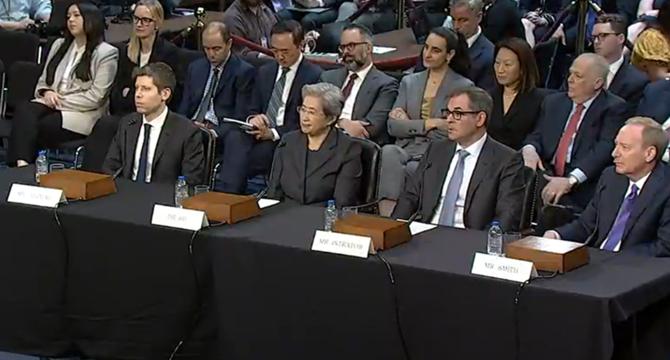Pymnts
1w
283

Image Credit: Pymnts
Tech Leaders Urge Congress for ‘Light-Touch’ AI Regulations
- Top tech executives like those from OpenAI, Microsoft, AMD, and CoreWeave advocated for 'light-touch' AI regulations during a U.S. Senate hearing.
- The executives emphasized the importance of the U.S. leading in AI development, suggesting measures such as accelerating infrastructure investment and building a skilled AI workforce.
- OpenAI CEO Sam Altman highlighted the need for regulatory frameworks, infrastructure support, and easing permitting processes for AI advancements.
- Microsoft's Brad Smith mentioned the importance of clarifying rules around data used for AI training, citing examples of copyright concerns.
- There were concerns about China's advancements in AI, with a focus on the geopolitical implications of losing U.S. leadership in the field.
- Executives stressed the necessity of massive computing power for AI progress, urging the expansion of data center capacity, power grid, and chip supply in the U.S.
- The talent gap was identified as a potential obstacle for U.S. competitiveness in AI, with calls for increased AI literacy and training programs.
- Efforts to regulate AI exports to ensure national security while fostering international cooperation were discussed as crucial for the U.S. to maintain its AI leadership.
- The tech sector's call for 'light-touch' regulations aims to balance innovation and risk mitigation in the evolving AI landscape.
- Investments in AI infrastructure, partnerships with educational institutions, and workforce development were highlighted as key strategies for securing America's place in the AI economy.
- The executives urged Congress to support initiatives that promote AI innovation while safeguarding against potential threats, particularly in the context of international competition.
Read Full Article
17 Likes
For uninterrupted reading, download the app